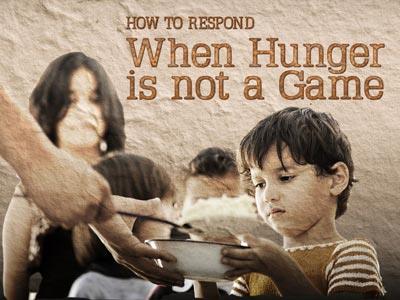-
In The Strength Of That Food
Contributed by Mary Erickson on Aug 12, 2024 (message contributor)
Summary: A sermon for the season after Pentecost, Year B, Lectionary 19
August 11, 2024
Rev. Mary Erickson
Hope Lutheran Church
1 Kings 19:4-8; John 6:35, 41-51
In the Strength of That Food
Friends, may grace and peace be yours in abundance in the knowledge of God and Christ Jesus our Lord.
Author and historical researcher David Grann wrote the wildly popular book Killers of the Flower Moon. It explored the mysterious deaths on the Osage Indian reservation in the 1920’s. The book was turned into a movie, featuring actors Leonardo DiCaprio and Lily Gladstone.
Grann’s latest book is entitled The Wager; a Tale of Shipwreck, Mutiny and Murder. The opening scene of the book depicts a broken-down, barely seaworthy lifeboat slowly coming into port in Brazil. As it makes port, the crowd is shocked to see the ghost-like crew. They look like the living dead. Aboard the ship were 29 emaciated, barely living sailors dressed in tatters and rags.
The book chronicles the ill-fated voyage of the British ship named The Wager, which left England in 1741. It was part of a fleet bound to sail around the southern tip of South America to engage Spanish forces in the Pacific.
During the passage around Cape Horn, the Wager became separated from the rest of the fleet. The crew was already weakened by scurvy, which, at that time, was not understood. The Wager became shipwrecked on a remote island off the coast of southern Chile. Hunger and starvation became their constant companions. Eventually, two separate groups of survivors made their way off the island and back to England, where they each told their remarkable tale.
The book reveals an engrossing depiction of what humans go through when faced with extreme hunger: the hoarding and stealing of food; deceit and cold-blooded violence; and also acts of extreme heroism; the will to survive despite overwhelming hardship, deprivation and challenges. Hunger is a terrible thing.
Two weeks ago we heard Jesus’ miracle when he multiplied two loaves of bread and five fish into a feast to feed 5000 people. Last Sunday and again today we ponder that miracle’s significance. Jesus is the Bread of Life.
Hunger is a driving force in the story. It’s never very far away. The crowd has followed Jesus because they’re hungry. They want more food. Jesus tells them about a bread that is significantly more filling than any earthly bread. This bread is himself. He says, “I am the bread of heaven.”
Jesus speaks of a bread that’s far more sustaining than the bread he gave to the multitudes. It’s a bread not of earthly origin. This enduring bread comes from heaven, from the eternal realm. Jesus offered that living bread to the crowd who followed him. And he offers it still to us today.
There are moments in this life’s journey when we feel absolutely depleted. We are totally tapped out. The worldly and emotional demands pressing on us require more energy than we’ve got. Have you ever been there? Maybe you are right now.
The prophet Elijah knew that pain. Elijah had challenged the priests of the idol Baal. He put everything on the line in that challenge. He put himself at odds with the false religious establishment and also with the royal house of Israel.
And now he was fleeing for his life. He won the challenge, but he lost the battle. Elijah left his country, his homeland, and he fled into the wilderness. He ran and ran until he could run no more. And then he laid himself down underneath a solitary broom tree. He laid down, and he prayed for God to take him.
Elijah was completely depleted. He had nothing left, nothing at all in the tank, no energy, no food or water, no friends, no country, no hope remaining for even one more day. “Just take me, God,” he prayed. And then he laid down and waited to die.
But God had another intention. An angel touched Elijah and roused him to wake up. And there sitting next to him was some freshly baked, warm bread and a beaker of water. Is there anything better than fresh, warm bread? “Get up, Elijah, get up and eat.” He consumes the warm bread and the water, and then he sleeps some more.
When the angel wakes him a second time, there’s more bread. The angel says to him, “Elijah, you need this food. You need it, otherwise, the journey will be too much for you.”
And this is the truth. A truer statement was never made. We need food for the journey. But more than just earthly bread and water, we need heavenly food. We need to eat the bread of promise. We need to drink the water of life. We need the heavenly food that gives hope for the journey! It’s that HOPE which gives us the strength to see another day, to look for the dawning of a new tomorrow. We need the food that feeds our soul. This is the food we need most of all. Without hope, without promise, we have nothing.

 Sermon Central
Sermon Central



